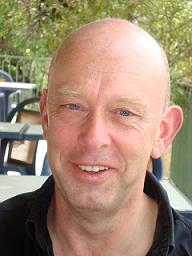
Ryuichi Sakamoto is a Japanese composer, record producer, and actor who has pursued a diverse range of styles as a solo artist and as a member of Yellow Magic Orchestra (YMO). With his bandmates Haruomi Hosono and Yukihiro Takahashi, Sakamoto influenced and pioneered a number of electronic music genres.

Evangelos Odysseas Papathanassiou, known professionally as Vangelis, was a Greek composer and arranger of electronic, progressive, ambient, and classical orchestral music. He was best known for his Academy Award-winning score to Chariots of Fire (1981), as well as for composing scores to the films Blade Runner (1982), Missing (1982), Antarctica (1983), The Bounty (1984), 1492: Conquest of Paradise (1992), and Alexander (2004), and for the use of his music in the 1980 PBS documentary series Cosmos: A Personal Voyage by Carl Sagan.
Wendy Carlos is an American musician and composer best known for her electronic music and film scores. Carlos is the first transgender recipient of a Grammy Award.

Raymond Scott was an American composer, band leader, pianist, record producer, and inventor of electronic instruments.

Who's Next is the fifth studio album by English rock band the Who. It developed from the aborted Lifehouse project, a multi-media rock opera conceived by the group's guitarist Pete Townshend as a follow-up to the band's 1969 album Tommy. The project was cancelled owing to its complexity and to conflicts with Kit Lambert, the band's manager, but the group salvaged some of the songs, without the connecting story elements, to release as their next album. Eight of the nine songs on Who's Next were from Lifehouse, the lone exception being the John Entwistle-penned "My Wife". Ultimately, the remaining Lifehouse tracks would all be released on other albums throughout the next decade.

Thomas Morgan Robertson, known by the stage name Thomas Dolby, is an English musician, producer, composer, entrepreneur and teacher.
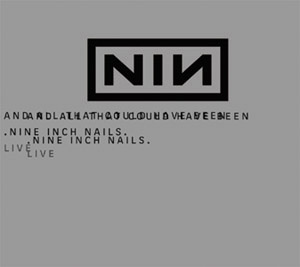
And All That Could Have Been is a double album by American industrial rock band Nine Inch Nails, released on January 22, 2002, by Nothing and Interscope Records. The live album contains music recorded during the Fragility v2.0 US tour in 2000. Disc one is a live album of most of the band's normal set list of the time, while disc two contains a studio album titled Still, containing "deconstructed" versions of previous Nine Inch Nails songs and some new material. The double DVD set, sold separately, includes video recordings of the songs performed on the CD, as well as additional song performances and footage from the tour.
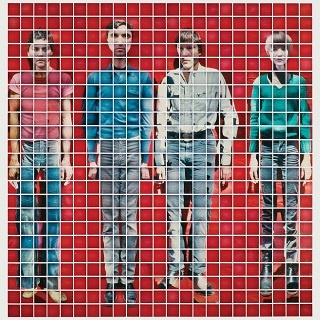
More Songs About Buildings and Food is the second studio album by American rock band Talking Heads, released on July 14, 1978, by Sire Records. It was the first of three albums produced by collaborator Brian Eno, and saw the band move toward an increasingly danceable style, crossing singer David Byrne's unusual delivery with new emphasis on the rhythm section composed of bassist Tina Weymouth and drummer Chris Frantz.

Isao Tomita, often known simply as Tomita, was a Japanese composer, regarded as one of the pioneers of electronic music and space music, and as one of the most famous producers of analog synthesizer arrangements. In addition to creating note-by-note realizations, Tomita made extensive use of the sound-design capabilities of his instrument, using synthesizers to create new sounds to accompany and enhance his electronic realizations of acoustic instruments. He also made effective use of analog music sequencers and the Mellotron, and featured futuristic science-fiction themes, while laying the foundations for synth-pop music and trance-like rhythms. Many of his albums are electronic versions and adaptations of familiar classical music pieces. He received four Grammy Award nominations for his 1974 album based on music by Claude Debussy, Snowflakes Are Dancing.
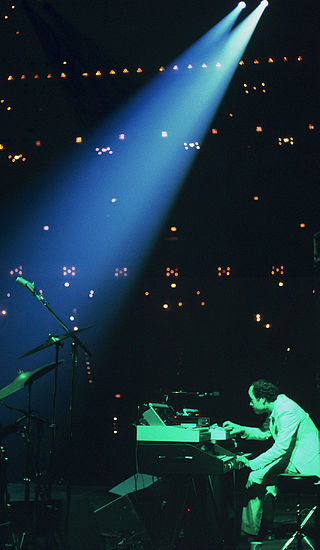
Jan Hammer is a Czech-American musician, composer, and record producer. He first gained his most visible audience while playing keyboards with the Mahavishnu Orchestra during the early 1970s, as well as his film scores for television and film including "Miami Vice Theme" and "Crockett's Theme", from the 1980s television program Miami Vice. He has continued to work as both a musical performer and producer.
Mannheim Steamroller is an American neoclassical new-age music ensemble founded and directed by percussionist/composer Chip Davis in 1974. The group is known primarily for its Fresh Aire series of albums, which blend classical music with elements of new age and rock, and for its modern recordings of Christmas music. The group has sold 28 million albums in the U.S. alone.

A Night at the Opera is the fourth studio album by the British rock band Queen, released on 21 November 1975 by EMI Records in the United Kingdom and by Elektra Records in the United States. Produced by Roy Thomas Baker and Queen, it was reportedly the most expensive album ever recorded at the time of its release.
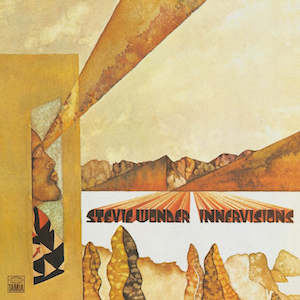
Innervisions is the sixteenth studio album by American singer, songwriter, and musician Stevie Wonder, released on August 3, 1973, by Tamla, a subsidiary of Motown Records. A landmark recording of Wonder's "classic period", the album has been regarded as his transition from the "Little Stevie Wonder" known for romantic ballads into a more musically mature, conscious, and grown-up artist. On the album, Wonder continued to experiment with the revolutionary T.O.N.T.O. synthesizer system developed by Malcolm Cecil and Robert Margouleff, and Innervisions became hugely influential on the future sound of commercial soul and black music.
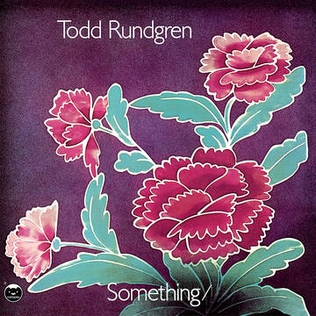
Something/Anything? is the third album by American musician Todd Rundgren, released in February 1972. It was his first double album, and was recorded in late 1971 in Los Angeles, New York City and Bearsville Studios, Woodstock. Three quarters of the album was recorded in the studio with Rundgren playing all instruments and singing all vocals, as well as being the producer. The final quarter contained a number of tracks recorded live in the studio without any overdubs, save for a short snippet of archive recordings from the 1960s.
M was an English new wave and synthpop music project from London, England, led by English musician Robin Scott in the late 1970s and early 1980s. M is most known for the 1979 hit "Pop Muzik", which reached number two in the UK Singles Chart in May 1979, and number one in the U.S. Billboard Hot 100 chart on 3 November 1979. Musicians who contributed to M at one time or another included Wally Badarou, Mark King, Phil Gould and Gary Barnacle of Level 42.
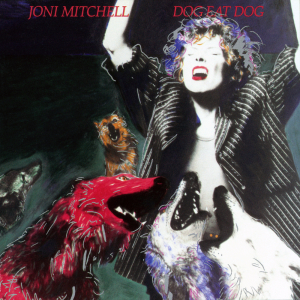
Dog Eat Dog is the 12th studio album by the Canadian singer-songwriter Joni Mitchell, released in 1985. It was her second album for Geffen Records.

The Golden Age of Wireless is the debut album by English musician Thomas Dolby. Originally released in May 1982, the album was reissued in a number of different configurations, with later resequencings including the pop hit "She Blinded Me with Science".
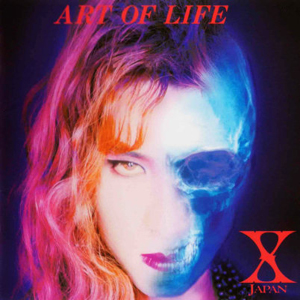
Art of Life is the fourth studio album by Japanese heavy metal band X Japan, released on August 25, 1993, by Atlantic Records. The album consists solely of the 29-minute-long orchestrated title track, which was written and composed by Yoshiki entirely in English and recorded with the Royal Philharmonic Orchestra. It topped the Oricon chart and has sold over 600,000 copies. The album is the band's first after changing their name from simply "X" and the first to feature bassist Heath.

The Works is the eleventh studio album by the British rock band Queen. It was released on 27 February 1984 by EMI Records just shortly after recording for the album had been completed in the United Kingdom and it is the band's first studio album to be released by Capitol Records in the United States. After the synth-heavy Hot Space (1982), the album saw the re-emergence of Brian May and Roger Taylor's rock sound, while still incorporating the early 80s retro futuristic electronic music and New York funk scenes. Recorded at the Record Plant Studios in Los Angeles, California, and Musicland Studios in Munich, Germany, from August 1983 to January 1984, the album's title comes from a comment Taylor made as recording began – "Let's give them the works!".
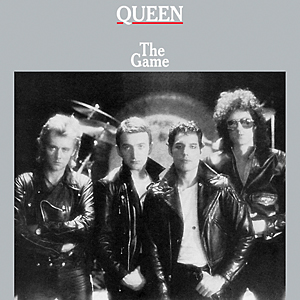
The Game is the eighth studio album by the British rock band Queen. It was released on 30 June 1980 by EMI Records in the UK and by Elektra Records in the US. The Game features a different sound from its predecessor, Jazz (1978). The Game was the first Queen album to use a synthesizer.
